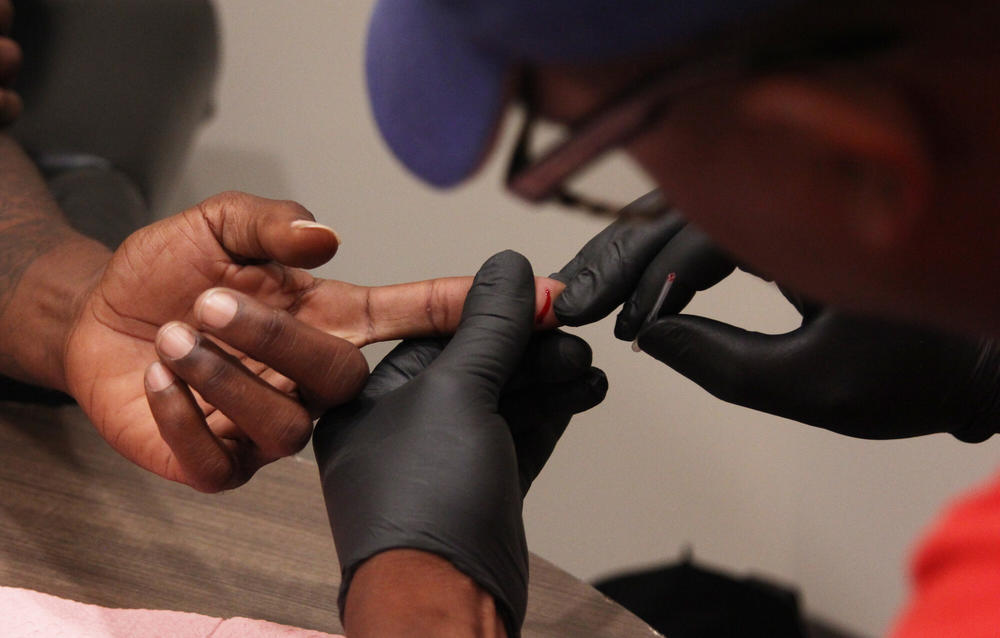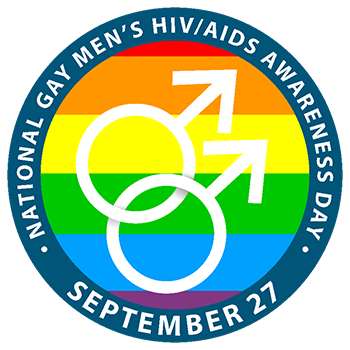
Caption
DeMarcus Beckham, HIV/AIDS advocate in the North Central Public Health district, performs a demonstration of an HIV test at a clinic in Macon. Rapid HIV blood tests take less than five minutes for results.
Credit: Sofi Gratas/GPB News


